NUFC in Japan Part VII
In his seventh exclusive story for NUFC.com, from rural Japan, We are Nippon author Simon Moran charts Newcastle Unitedís descent and struggle under Mike Ashley.
May 24th, 2009
We face Aston Villa in a decisive Premier League match, lose 0-1, courtesy of a Damien
Duff own goal and witness the bewildering jubilation of Villa fans celebrating our demise
with chants and banners. They wonder who our next Messiah will be. Cast from the heavens of the Premier League, I wonder more if we will ever escape the inferno of the
Championship.
In April 2007, we move to a traditional farmhouse weíve renovated in a small village in the
remote Kyoto countryside. The village has been here since the Kamakura period
(1185Ė1333), and I am the first foreigner ever to live here.
There is neither pub nor shop within walking distance, only the other 30-odd houses in the
village, the fields and mountains. The nearest station is a 15-minute drive away. However, we
are fully connected, and I get fibre optic for the first time.
The satellite dish has not yet been set up, nor wired in, so I attach it to a sawhorse the joiners
left in the garden, point it in what I hope is the right direction, and hope the signal will clear
the mountains. I run a cable over the veranda, through the sliding windows.
Only two feet above ground, there is no chance of a fall.
The signal is fine, but I donít see a win for the rest of the season as it all peters out into mid-table mediocrity.
I have to join in with village chores, such as grass-cutting and clearing the roads and drains.
All the men from village gather for this on a hot day, and wind down with beer and bento
(lunchboxes) afterwards. Iím toasted by all as a welcome newcomer and accept far too much
sake. Staggering home, I sleep face down on our lovely new wooden floor.
The frogs begin to croak, the light changes and the fields are prepared for rice planting. June
brings hotaru (fireflies), July dragonflies and in summer, as we cower from the heat, we are
warned of poisonous snakes in the undergrowth.
Sam Allardyce is already manager when Mike Ashley buys the club in June. I watch the first
game of the season on the kitchen table via a local live stream to my Mac. Itís a great
broadcast, and not a penny goes to Rupert Murdoch.
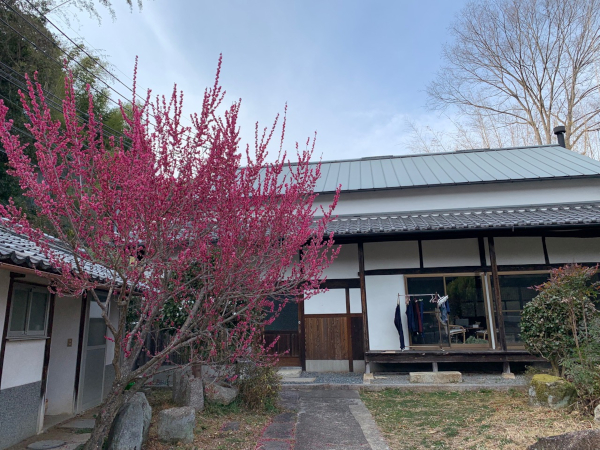
Fleeting beauty
Ashley brings a wave of optimism, is seen in the stands drinking pints with the fans,
promising transparency and a bright future. For a moment, just a moment, it feels like the
club is on the cusp of something great. This proves to be as fleeting as the beauty of cherry
blossom in spring and fireflies in summer.
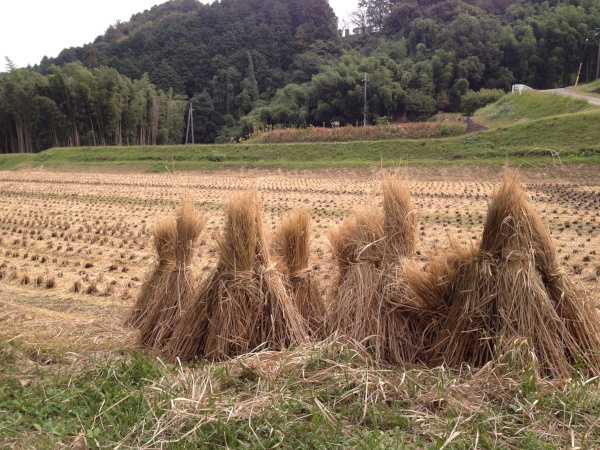
Harvest time
As autumn comes the sun lowers, the swallows fly higher in pursuit of insect prey, then
depart for warmer climes as the rice harvest begins. All things start to turn yellow and red;
brown and gold.
There are two shrines in the village, and one temple. The resident priest has three daughters,
themselves all ordained. They play a concert in the temple at the autumn harvest moon
festival, also celebrated with rice cakes, moon viewing and images of rabbits. The priest
plays the shakuhachi (Japanese bamboo flute,) two of the daughters, resplendent in kimono,
play the koto, (Japanese zither or harp).
The majority of Japanese people will never get to see this, let alone have it on their doorstep.
I wonder at my luck, having found such beauty and serenity here in the countryside. I check
my watch and sneak away. The match starts soon.
Beauty gives way to mundanity. Itís just my luck; practically every game is viewable, but
very few are watchable, and certainly not at 4am for weekday matches.
Winter arrives and the rising sun of the winter solstice celebrated, now it will begin to rise, warming the earth.
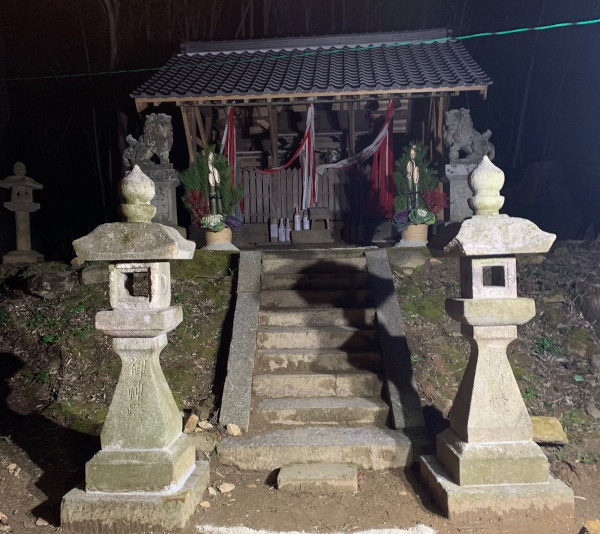
New Year Hopes and Dreams
Omisoka, New Yearís Eve, sees the ringing of the temple bell 108 times, once for each
worldly desire, and Shogatsu, New Yearís Day, cards, gifts of money, prayers and charms
predicting the fortunes of 2008.
Allardyce is sacked and Keegan comes for the third time. Iíve witnessed both the previous
comings, and they both ended in tears.
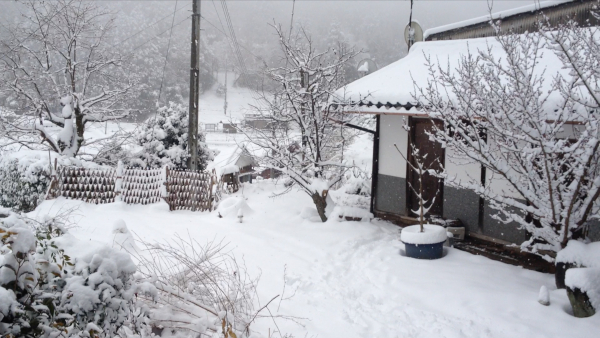
Snowy winter
February brings snow twenty centimetresí deep. Woodpeckers tap at the trees and owls call at
night.
Keegan makes no immediate impact other than on the hairs on the back of the necks of a few
and we struggle to win games until the uguisu, or warbler, calling loudly from the woods and
bamboo groves, heralds spring. We stumble as the swallows return in April.
By the setting of the koinobori, carp streamers, a sign of strength and courage as carp swim
strongly up waterfalls celebrating kodomonohi (Childrenís Day, formerly Boyís festival) the
season ends and we finish safe with hope of a rebuild.
In mid-August, we celebrate
Obon. People return to their family home, clean the family
graves and household altars which are in turn revisited by the souls of the departed.
A little later is jizobon, and we gather by the jizo-san, or Jizo Bodhisattva, small statues
regarded guardian deities of children.
The village children rotate a large set of juzu beads, touching one to their forehead for luck.
We play games, eat sweets, scoop goldfish and I am tasked with providing some
entertainment. We play blow football.
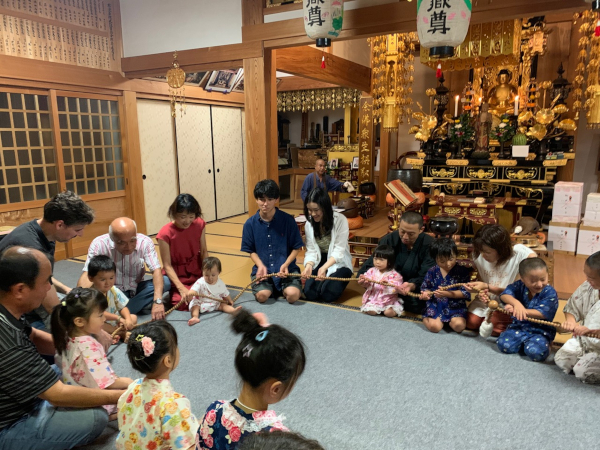
Prayers for children
I take some luck down the hill from the temple to watch a spirited Spiderman earn a draw
away.
In September, Keegan once more throws a tantrum and takes flight for third time, citing
interference in transfer decisions, a precursor of much worse to follow. At home Iíve never
been more connected, but the disconnect between the club and fans begins to widen
forebodingly.
We become a comedy club with JFK, expletives all round and players seemingly playing for
themselves or to avoid injury.
Despite the odd blip of happiness. We enter a cycle of relegation and promotion, our own
kind of limbo, as the ambition is to only exist, not to thrive.
Analogue terrestrial television broadcasts in Japan end on July 24, 2011. Our TV no longer
works so we throw it away and donít replace it. Having yearned for full connection, I no
longer bother. Having yearned for so long for all the games in my lap, now I have them, I slip
into a fug; I follow the results and but would rather pull my own teeth out than get up at 4am for more
lack-lustre disappointment.
We need to exit limbo, climb through purgatory and find our very own Beatrice to lead us to
paradise.
Simon's blog is here:
www.moranactually.com
Simon's book "We Are Nippon" a great guide to visiting Japan, drinking beer and watching
football, is available for £8.99 with free
P&P (UK and Japan) and £1.50 donations each to the Newcastle West
End Foodbank and Wor Flags. Also available worldwide.
Order here: https://tinyurl.com/wearenippon
| Back to Main Page |